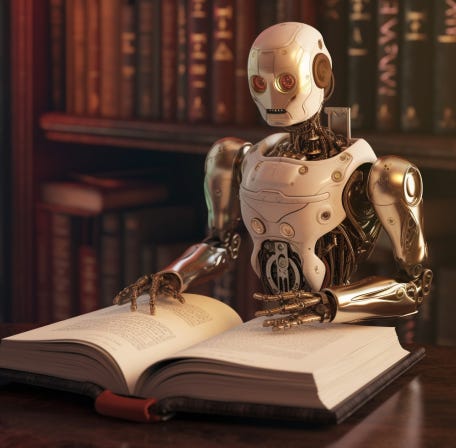Why Generative AI Won’t Disrupt Books. Wired.com.
THE TECH WORLD has long been convinced that it understands the desires of readers better than they do themselves. For years, VCs have promised to upend books and the structures around their creation and consumption. Some came from within the publishing industry, but like their counterparts “disrupting” other sectors, including film and TV, many more did not. And for the most part, despite tech’s sometimes drastic (and often negative) effects on other industries, book- and reading-related startups failed to alter much at all. People are still buying books—in fact, they’re buying more than ever. Pandemic lockdowns brought a perhaps unsurprising boom in sales, and even though numbers slipped as restrictions lifted, print sales were still nearly 12 percent higher in 2022 than they were in 2019, and sales of audio books continue to increase dramatically year over year.
One reason books haven’t been particularly disruptable might be that many of the people looking to “fix” things couldn’t actually articulate what was broken—whether through their failure to see the real problems facing the industry (namely, Amazon’s stranglehold), or their insistence that books are not particularly enjoyable as a medium. “It’s that arrogance, to come into a community you know nothing about, that you might have studied as you study for an MBA, and think that you can revolutionize anything,” says writer and longtime book-industry observer Maris Kreizman. “There were so many false problems that tech guys created that we didn’t actually have.”
…
THE “10X MORE engaging” crowd has come in waves over the past two decades, washed ashore via broader tech trends, like social media, tablets, virtual reality, NFTs, and AI. These tech enthusiasts promised a vast, untapped market full of people just waiting for technology to make books more “fun” and delivered pronouncements with a grifting sort of energy that urged you to seize on the newest trend while it was hot—even as everyone could see that previous hyped ventures had not, in fact, utterly transformed the way people read. Interactive books could have sound effects or music that hits at certain story beats. NFTs could let readers “own” a character. AI could allow readers to endlessly generate their own books, or to eschew—to borrow one particular framing—“static stories” entirely and put themselves directly into a fictional world.
And the kicker:
Publisher’s Weekly keeps a database of book startups that now numbers more than 1,300; many of them are marked “Closed,” alongside a graveyard of broken URLs.





Jasper Fforde wrote about this in the Thursday Next series. Story 2.0. It sounds awful, and I have a kindle.
What could be more immersive than my reading experience. I decide (within a framework) what the people look like, what the world looks like, the level of visible violence, what happens to people once they leave the story. And I choose the stories that entertain me, the worlds I want to live in and when I want to leave. Thanks to JB's adventures in Fan Fiction I also get to contribute a little to these worlds. I can't imagine anything more immersive.